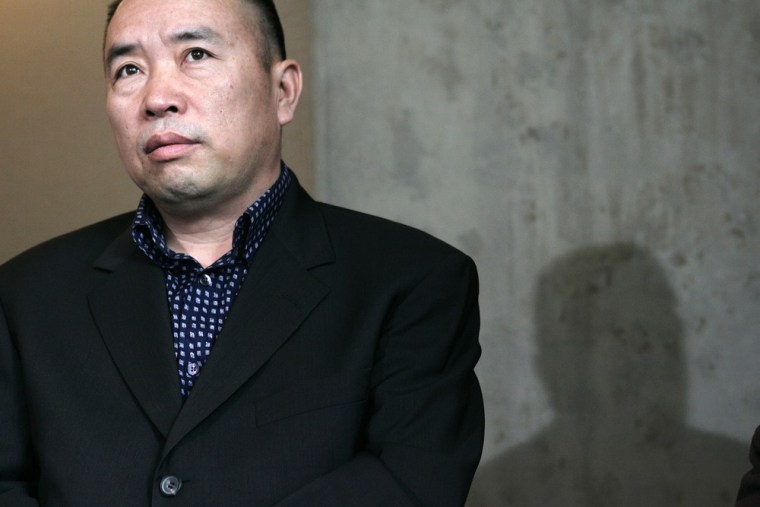China's most-wanted man, who was deported from Canada in July after a decade-long legal battle, has admitted to his crimes and will now be handed over to prosecutors, state media reported Friday.
Beijing had sought the deportation of Lai Changxing for years, accusing him of running a multi-billion dollar smuggling ring in the southeastern city of Xiamen in the 1990s.
The move brings authorities a step closer to a conclusion in one of China's most lurid, long-running corruption cases.
Prosecutors indicted Lai for allegedly masterminding a network that smuggled everything from cigarettes to cars and oil and bribed dozens of government workers between 1996 and 1999, China's state broadcaster CCTV reported.
Lai and other key members of the syndicate have "confessed to the facts of the smuggling and bribery charges without concealing anything," the report said.
The "legal rights" of Lai and the other suspects were "fully guaranteed," with Lai able to meet with his lawyer, state radio added.
Lai became China's most-wanted man after he fled to Canada in 1999 and fought extradition for 12 years.
Nothing had been heard of him since he was returned to China over the summer.
Liquor and prostitutes
Before fleeing to Canada, he lived a life of luxury in China complete with a bulletproof Mercedes Benz. He is alleged to have run a mansion in which he plied officials with liquor and prostitutes.
At the time, state TV splashed pictures of the network's allegedly ill-gotten gains: A tiger skin rug laid out on a conference table, confiscated cars belonging to corrupt bureaucrats, a sack of gold rings, and a picture of a young woman, said to be a lover kept for one official by Lai.
Chinese media have said Lai's alleged smuggling operation was valued at $10 billion.
China put more than 300 suspects on trial and sentenced 14 to death, including provincial officials and a former vice minister of public security, in a case Beijing has used for a propaganda campaign against corruption.
China's Communist Party has struggled to control widespread practices of embezzlement, taking kickbacks, and influence peddling that have degraded public faith and sometimes led to violent protest.
In Canada, Lai had avoided deportation by arguing he could face the death penalty or be tortured and would not get a fair trial in his home country.
But that legal battle ended in July when a federal court in Vancouver ruled Lai should not be considered a refugee and upheld his deportation.
China promised Canada that Lai would not get the death penalty in 2001 when then-President Jiang Zemin sent the Canadian prime minister at the time, Jean Chretien, a diplomatic note with assurances Lai would not be executed if returned.
Loopholes exploited
Lai's alleged crimes occurred in the special economic zone of Xiamen in Fujian province in the mid-1990s when Jia Qinglin, now the ruling Communist Party's fourth most senior leader, was the province's party boss.
Beijing has accused Lai's business empire, the Yuanhua Group, of bribing officials to allow a massive smuggling ring. Jia's wife, Lin Youfang, was among those implicated in the scandal. She denied any wrongdoing.
Lai admitted in a 2009 interview with Toronto's Globe and Mail newspaper that he had avoided taxes by exploiting loopholes in the law, but he denies bribery charges.
Lai may face life imprisonment, state media has reported. But some legal experts and human rights activists have said it was unlikely Lai could receive a fair trial in China.
